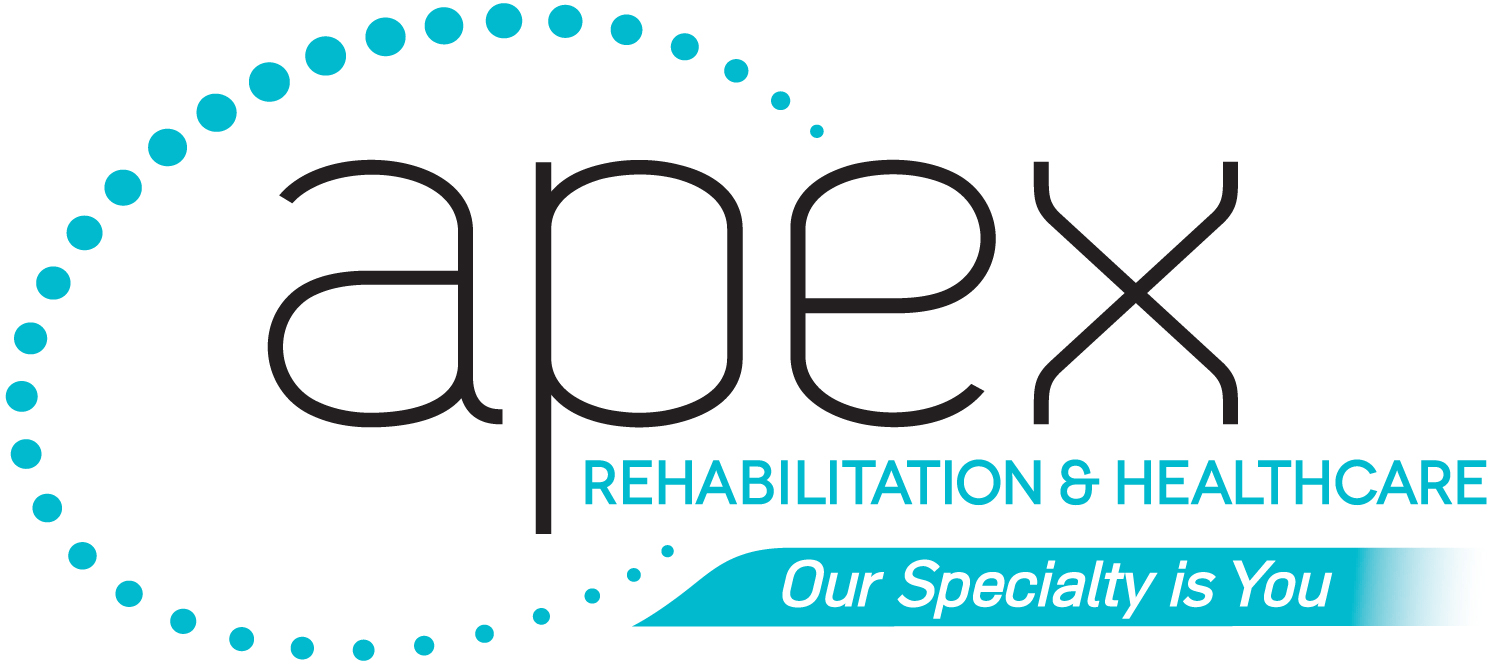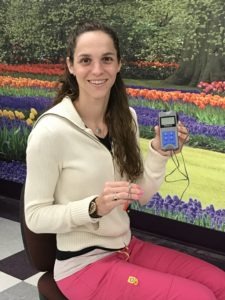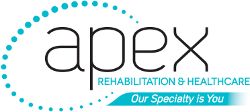
Electrical Stimulation Helps Patients with Swallowing Disorders at Apex Rehabilitation & Healthcare

What is your favorite meal? Perhaps it is a grilled steak, accompanied by a glass of red wine. Or maybe you prefer a veggie burger washed down with some refreshing iced tea. Imagine sitting at a table with your favorite meal in front of you, but being unable to eat.
That is the reality for the approximately 15 million Americans who are affected by dysphagia, a condition that interferes with the ability to swallow. Mild dysphagia is often the result of aging, while more significant symptoms, including a complete inability to swallow food and liquid, may be brought on by stroke, cancer, injury, neurological damage, or other causes.
With some studies suggesting that up to 75% of nursing home residents are affected by dysphagia, speech therapists at Apex Rehabilitation and Healthcare are among a handful in the area to use a special tool to help their patients with dysphagia re-acquire the muscle tone and skills needed to enjoy food and drinks again. Known as VitalStim®, the device uses electrical stimulation to strengthen the muscles used to swallow.
Administered by speech therapist Lauren Carahalios, VitalStim is used in concert with other therapies that may be prescribed, such as swallowing exercises. Painless, safe and non-invasive, VitalStim involves the placement of electrodes over specific muscles in the face or neck. Once the device is turned on, the therapist then guides the patient through specific exercises. Adding VitalStim to the swallowing rehabilitation regimen has been shown to be effective in helping patients who have not had success with standard therapy, and to aid in the achievement of long-term results.
“In addition to being at risk for poor nutrition, patients who are unable to swallow effectively can become socially isolated, since so much of our social interactions revolve around sharing meals with others,” said Shweta Malhotra, PT, Director of Rehabilitation at Apex. “The ability to eat is an essential part of one’s quality of life.” Patients with severe dysphagia often rely on a feeding tube for nourishment, and they are at risk for significant weight loss and dehydration.
Ms. Carahalios completed an intensive two-day certification course in order to use VitalStim on Apex patients.
